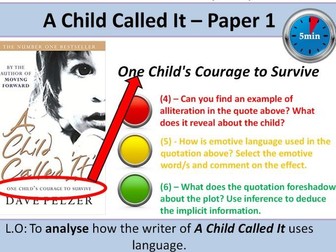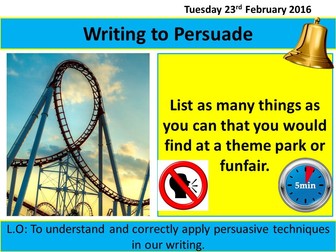AQA English Language Paper 1: The Kite Runner
A practice exam paper for the new AQA English Language Paper 1: Explorations in Creative Reading and Writing.<br />
<br />
The questions explored throughout the three lessons in this bundle imitate the AQA Language Paper 1 exam paper effectively. The lessons detail clear instructions on how to 'attack' each exam question. I have used these lessons for both my KS3 and KS4 English classes and have differentiated appropriately to suit the needs of all students.<br />
<br />
Files in resource:<br />
8. - The Kite Runner extract with AQA exam style questions (Word Document)<br />
8.1 - Q1 (four bullet points) and Q2 (language)<br />
8.2 - Q3 (structure)<br />
8.3 - Q4 (character/theme) and Section B (descriptive writing)<br />
<br />
Learning objective:<br />
To analyse how the writer of The Kite Runner uses language.



